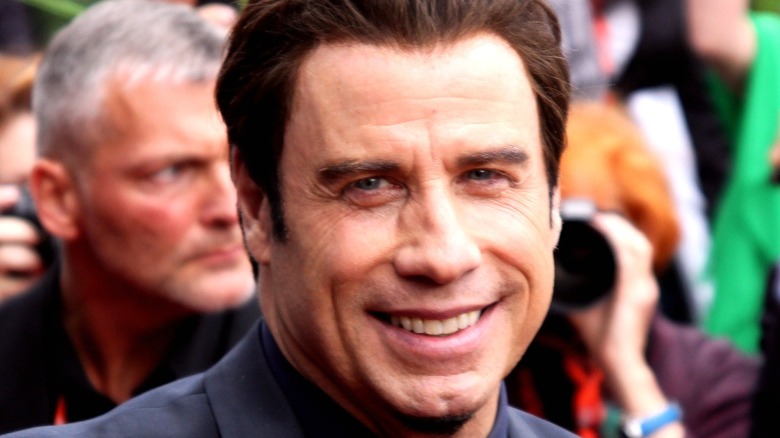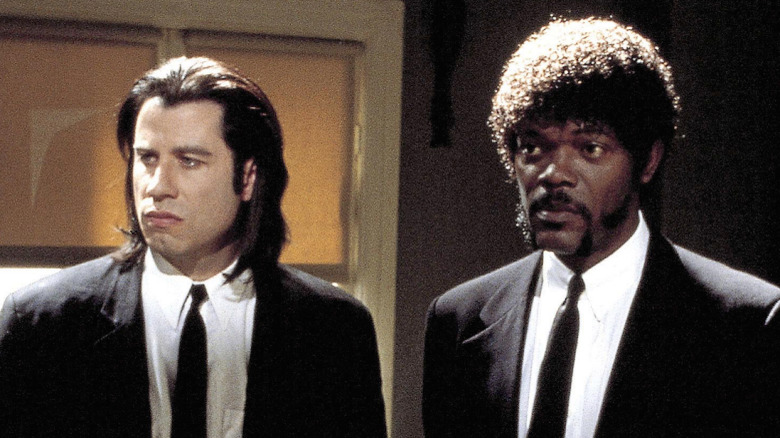How Pulp Fiction Saved John Travolta's Failing Career
After several film hits like "Saturday Night Fever," "Grease," and "Urban Cowboy," multi-talented actor John Travolta saw his career start to sputter a bit. Travolta could sing, dance, and act as complex characters, and 1981 saw him deliver one of his greatest roles in "Blow Out." But he wasn't immune to bad choices or bad luck. First, Travolta's post-"Grease" reunion with Olivia Newton-John, the 1983 high concept romantic comedy "Two of a Kind," was a flop. The sequel to "Saturday Night Fever," "Staying Alive," did well commercially but was savaged by critics and quietly forgotten. And follow-up drama "Perfect" and 1989's "The Experts" were also box office bombs (via The Numbers).
"Look Who's Talking" did much better for Travolta than the previous decade of movies, but the actor was still having trouble breaking out of the image he'd created in musicals like "Grease." It was only when he appeared in Quentin Tarantino's 1994 film phenomenon "Pulp Fiction" that Travolta figured out a way forward as a different kind of movie star. This is how "Pulp Fiction" helped the actor's career.
Pulp Fiction reinvented Travolta's image
"Pulp Fiction" famously tells the story out of chronological order, with different characters weaving in and out of the narrative, but John Travolta is a key figure as Vincent Vega. A mobster and hitman working for Marsellus Wallace (Ving Rhames), Vincent has a tendency to walk into bad situations after using the bathroom – including walking in on Marcellus' wife, Mia Wallace (Uma Thurman), overdosing on his heroin.
Travolta had done dramatic parts before, but never one quite like the role of Vincent, which relied on a gift for deadpan comedy and realism he'd never really shown on screen before. In a callback to his previous films, he danced with Thurman, but his clumsy moves also feel like a specific acting choice for the character. He'd become a nuanced, naturalistic leading man overnight.
The film's incredible success catapulted the actor back on the A-list in the '90s, as he once again appeared in popular Hollywood movies like "Get Shorty," "Michael," "Face/Off," and "Primary Colors." His post-"Pulp Fiction" career did see another downturn when he starred in and produced the disastrous L. Ron Hubbard adaptation "Battlefield Earth," but he's stayed busy in the years since then, including with a part in the 1st season of "American Crime Story."

